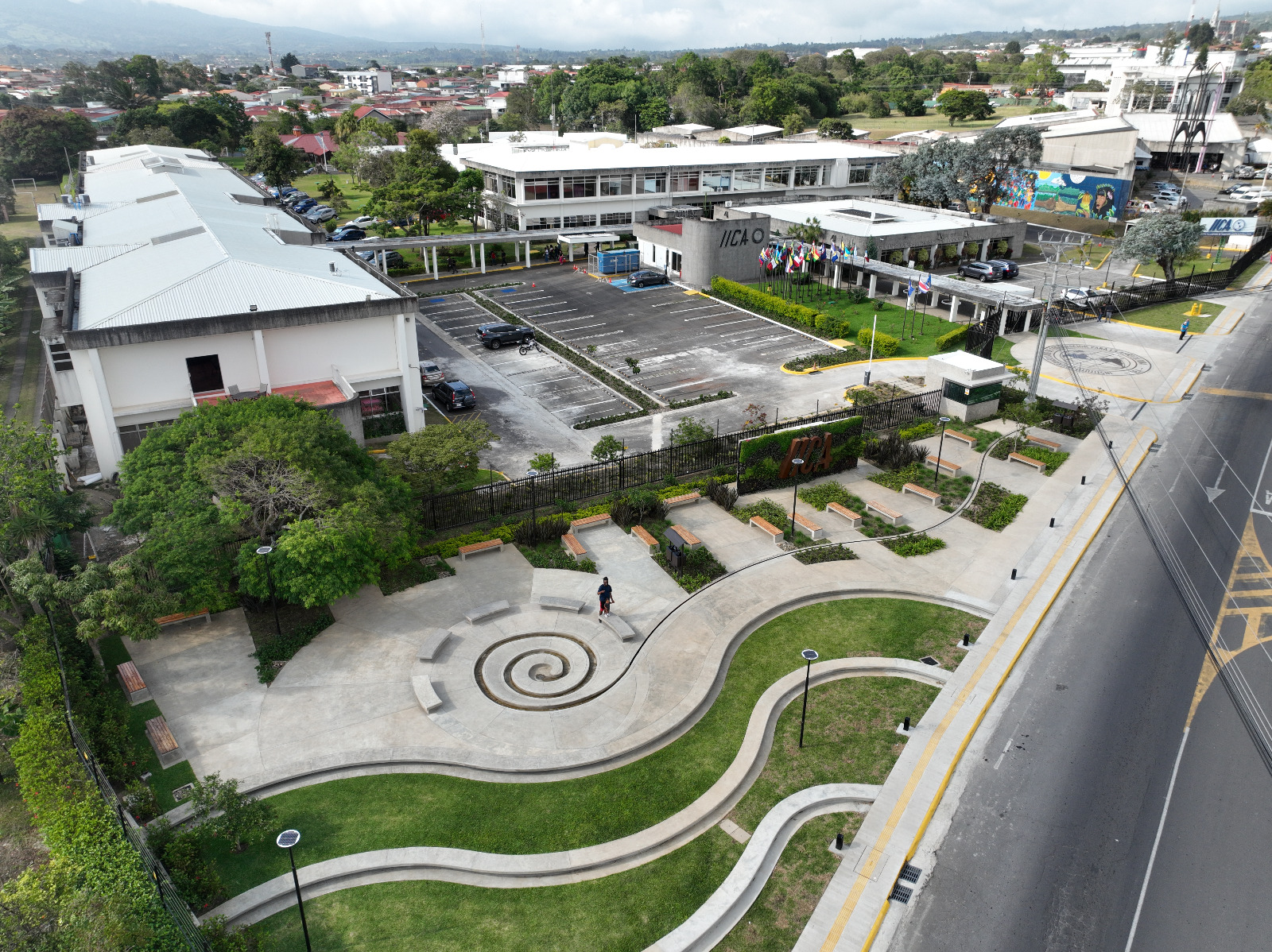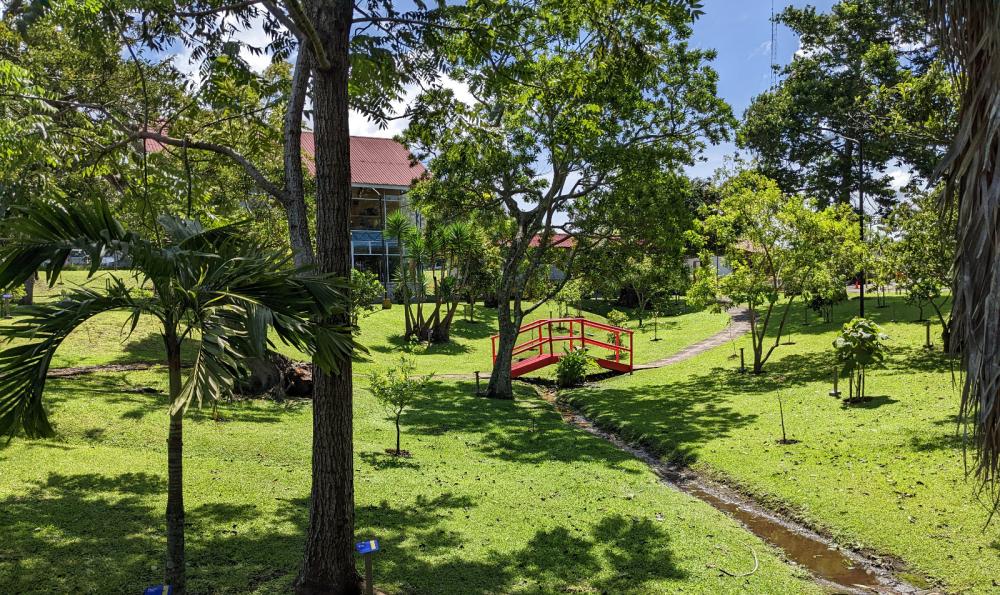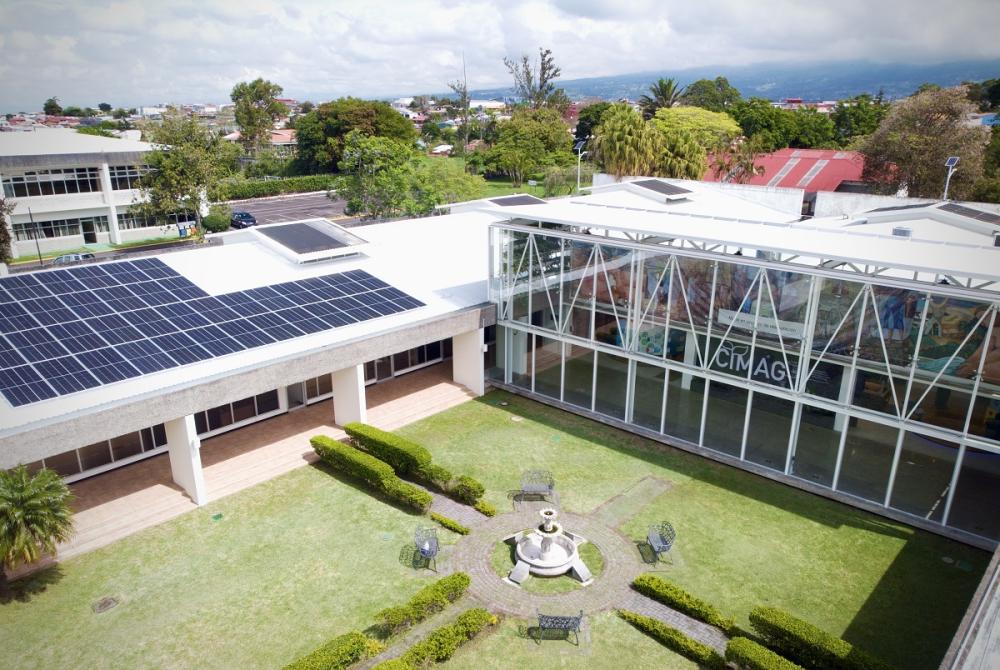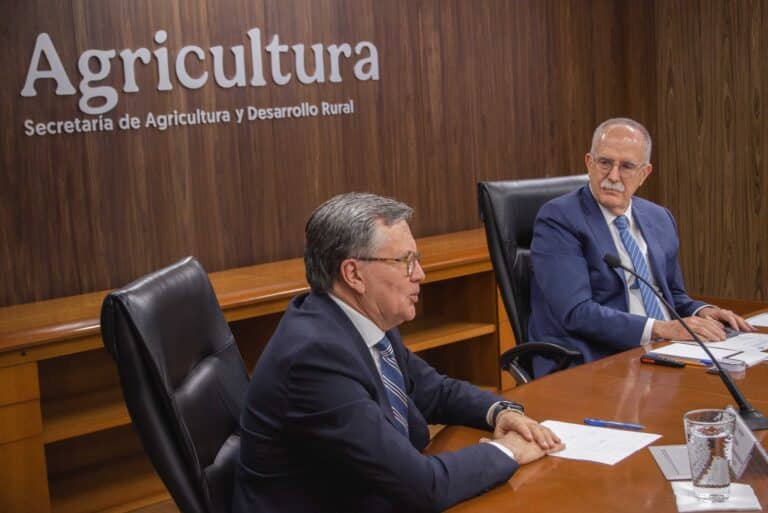As part of its strategy, IICA sought to become a carbon neutral organization, recognized by the Costa Rican Ministry of the Environment and Energy (MINAE), in line with global climate action targets and based on the values of sustainability and environmental responsibility.

San Jose, 5 June 2023 (IICA). On this World Environment Day, the Inter-American Institute for Cooperation on Agriculture (IICA) is announcing that it has been designated by Costa Rica’s Ministry of the Environment and Energy (MINAE) as a carbon neutral organization, thereby confirming that all of its activities in the country reflect rigorous environmental management and meticulous emission metrics.
The Headquarters of the Institute and the Costa Rican Delegation, which are located in Coronado, San Jose, were both awarded carbon neutral recognition in the organizational category of Costa Rica’s National Carbon Neutrality Program (PPCCN 2.0), which falls under MINAE’s Climate Change Directorate.
Manuel Otero, the Director of the Institute, maintained that consistent with its mission and vision during 80 years of service to agriculture in the Americas, IICA is seeking to reinforce its image as an organization that is keeping pace with current and future events, and one that espouses a green culture and an evident commitment to sustainability”.
As part of the process, IICA implemented a series of measures at its facilities, such as changing light fixtures for more efficient use of electricity; applying a medium- and long-term emission reduction strategy that includes installing solar panels, changing fixed lighting to solar fixtures, replacing computer equipment and purchasing more efficient vehicles, among other actions.

The Institute is also using a Greenhouse Gas Reporting System (GGRS) and responsibility assignment matrices, and has established work teams, as well as GHG data control, procedures and logs, all with a view to establishing sustainable and economically viable strategies.
As part of the Institute’s strategy, IICA’s Headquarters and its Costa Rica Delegation volunteered to work towards becoming a carbon neutral organization, in line with global climate action targets and the values of environmental sustainability and responsibility that characterize the organization.
Otero explained that, “IICA is a conscious, environmentally committed and carbon neutral organization, which means that in keeping with our organizational culture, we are taking the necessary steps to create a balance between the GHG emissions that we produce, reduce and those that we offset. It is always important to go the extra mile”.
As part of its actions to be more sustainable, IICA has established the Forest of Agriculture of the Americas at its Headquarters, in partnership with CATIE. The forest contains species that are representative of all of the countries in the hemisphere and it falls under the IICA of Open Doors Initiative, which aims to renew and strengthen ties with the community.
IICA undertook an eight-month and ten-stage process to be recognized as a carbon neutral organization.

The team carrying out the process within the Institute was headed by Adriana Alpízar, Information Systems Specialist, who worked along with Emmanuel Picado, Manager of Information and Communication Technology and Digital Agriculture; Karen Montiel, Technical Specialist; and Carolos Jiménez, from General Administrative Services.
The process included various stages: an orientation presentation to the entire staff; creation of an inventory of direct GHG emissions; preparation of a significant indirect GHG emission matrix: development of GGRS procedures and forms; technical accuracy reviews; a GGRA report and presentation; an internal audit and audit by the Validation and Verification Organization (OVV), accredited by the Costa Rican Accreditation Body (ECA); and the submission of information to MINAE’s Climate Change Directorate to be included in the National Carbon Neutrality Program 2.0.
Recognition as a carbon neutral organization is valid for a year, and is subject to verification and renewal for the same period.
The IICA Direct General explained that, “Carbon neutrality offers several benefits, such as fostering greater environmental consciousness and awareness among our staff, clients and suppliers. It also ensures effective GHG emission management, improved internal processes to take responsibility for our emissions; and finally, ab enhanced corporate image, demonstrating our commitment to the environment and our contribution to mitigating GHG emissions in the fight against climate change”.
More information:
Institutional Communication Division.
comunicacion.institucional@iica.int











